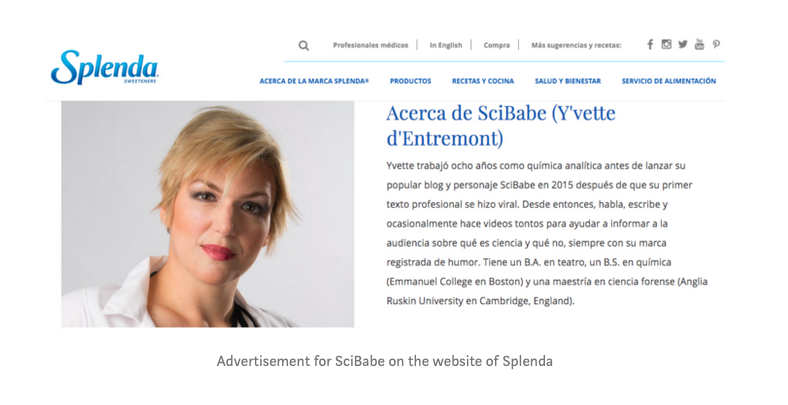
Investigative journalist exposes how corporate messaging gains science media coverage
The journalist Paul Thacker recently tweeted, “I can't tell you the number of conversations I've had with journalists who make derogatory comments about science journalists and scicomm. This includes investigative reporters at the New York Times and friends who are journalism professors. Wake up time.”
And to help them wake up, Thacker has fired a shot across the bows of those science writers whose reporting he suggests does not even deserve the name of journalism.
Anyone who has monitored the endless stream of articles over the last 2-3 decades about the wonders of genetic engineering – shamelessly re-worked more recently as the triumphs of CRISPR-Cas9 and other forms of gene editing – will know exactly what Thacker is getting at: science writers who serve as cheerleaders, rather than critical commentators.
To many of their journalistic colleagues, such reporters can appear to be credulous, to kow-tow to authority, to lack investigative skills, and to pander to the “Ain’t science awesome!” tendencies of some of their readers.
And this failure to bring critical scrutiny and skepticism to the claims made by authoritative-seeming sources helps companies, scientists, and institutions with vested interests to insert their messaging – often shaped by PR operatives – into apparently independent media content.
There are, of course, some notable exceptions – like some of the journalists who took part in a panel on “Unpacking the Corporate Manipulation Toolbox” at the recent World Conference of Science Journalists. But Paul Thacker points out how even there, the journalism of Brooke Borel, who chaired that session, exemplifies how corporate-promoted messaging can gain editorial space.
Thacker has some entertaining examples, including:
• Borel’s promotion of Kavin Senapathy's awkward non-apology apology about her relationship with Monsanto – an article that actually promotes the industry’s PR messaging while claiming to create critical distance from Monsanto’s PR people;
• Borel’s interview with the SciBabe, who comes sponsored by Monsanto and Splenda;
• Borel’s involvement in a biotech industry “bootcamp” that she apparently didn’t even twig was a corporate junket; and
• Borel’s uncritical review of the notorious GMO propaganda film Food Evolution.
For Thacker, it’s past time science journalism finally earned its name and stopped operating as a conduit for “science” marketing and corporate PR.
----
Why does Undark magazine publish weird Scicomm and not more journalism?
Paul D. Thacker
Medium.com, 2 July 2019
https://medium.com/@thackerpd/why-does-undark-magazine-publish-weird-scicomm-and-not-more-journalism-372adb3f1960
[links to sources and illustrations at the URL above]
Unless you’ve somehow managed to live completely untethered from the Internet, you’re aware that an increasing amount of the media, especially when brought to us by Facebook and Twitter, is manipulated by special interests from Russia to Alex Jones.
Fake news is a huge matter in science media too, and here industries often go beyond providing spin to outright manipulation of reporters, using strategies that, as I wrote in a chapter for a soon-to-be-released book on corruption in medicine, the PR firm Hill & Knowlton devised back in the 1950s on behalf of tobacco companies. These tactics included creating front groups to fool reporters into believing that they were addressing health concerns about smoking, and providing journalists with industry friendly scientists who gave canned quotes that favored tobacco companies.
So it should be great news that, at a journalism conference today, a group of reporters along with one academic are getting together to address the problems of scientific fraud and corporate PR tactics used to manipulate public narratives, as well as to provide tips on spotting corporate dishonesty.
But there’s one problem: the moderator, Brooke Borel, is a clear example of a journalist who corporations and their PR firms have influenced. Ms. Borel is an editor at Undark Magazine and also teaches science writing at NYU, so it’s important that someone teaching future journalists gets things right. We can all only hope her panel includes a discussion of her personal experiences of being fooled into promoting industry misinformation.
A few years back, Ms. Borel wrote an article about University of Florida professor Kevin Folta posing as Vern Blazek on a podcast he runs to promote GMO agriculture. In the piece, she admitted she had met Mr. Folta at an expense-paid conference on GMO agriculture at UC Davis. She expanded on having her expenses paid to attend this conference and financial conflicts of interest in an article at Popular Science:
"The conference in question was called the Biotech Literacy Project Boot Camp. I was invited to attend and to speak on some panels, although it wasn’t initially clear what that would involve. I was offered a $2,000 honorarium, as well as expenses. I wrote back and asked who would provide the honorarium and was told it’d be a combination of funds from UC Davis, USDA, state money, and the Biotechnology Industry Organization (BIO).
"Now, BIO is an industry group. When I saw it listed, I decided then that if I went to the conference, I wouldn’t take that money, because I cover GMOs here at Popular Science as well as at other outlets."
Suspicious, I found the conference flyer, noting that it was sponsored by UC Davis and two Monsanto front groups: the Genetic Literacy Project and Academics Review. This raised alarm bells, because the job of a journalist is to expose, never to collaborate with corporate front groups.
After digging further, searching documents and making contact with BIO, USDA, universities, and the State Department, I found out that the conference was secretly funded by industry to promote GMOs and pesticides such as glyphosate. Yet, even after my piece ran on this disturbing trend of corporate-sponsored journalism, with all the documents uploaded for proof, and someone tweeted it to Ms. Borel, she never bothered to correct her story.
Anyone reading Ms. Borel’s story today would think she attended a conference funded with university and federal agency monies.
This problematic story was preceded by another article Ms. Borel published on a fellow panelist she apparently met at that same corporate conference named Yvette d’Entremont, who writes as SciBabe.
Please reader, do not bore yourself by reading this Q&A where the SciBabe explains why she promotes GMOs, or her exciting (boring!) philosophy on science communications. #Scicomm! Just understand that, since Ms. Borel’s interview, the SciBabe began endorsing Splenda and is now promoted on Splenda’s website in several languages. SciBabe has also been a featured speaker at a Canola Council of Canada Convention, Chemical Council of NJ Spring Conference and was the keynote speaker at a session sponsored by Monsanto, at CropLife’s meeting in 2016.
In short, Ms. Borel unwittingly attended an industry junket where, by coincidence, she bumped into an industry promotional speaker. The expenses industry paid to have Ms. Borel attend that junket likely paid off in the profile-raising article she wrote on SciBabe for Popular Science.
During the Cold War, intelligence officers created a set of informal directives called “Moscow Rules” that provided a guidance for intelligence officers to detect foreign influence and covert operations. One of the oft repeated truisms by counterintelligence officers is useful for reporters: there are no coincidences.
But in Ms. Borel’s journalism, coincidences abound. In another example, when the documentary Food Evolution came out, Vice News offered a critical view of the film, noting that several experts called the documentary a “shill for corporate interests.” Forty-five scientists, academics, and writers signed a statement that blasted the film as a “piece of propaganda.” Both UC Berkeley professor Michael Pollan and NYU professor Marion Nestle also disavowed the film, and asked the director to remove their interviews as they were cut to provide misleading quotes. The director refused.
By coincidence, none of this information made it into Ms. Borel’s review of Food Evolution in Scientific American, which may explain why GMO Answers promotes her article on their website. Ketchum PR — the public relations firm for Putin, Gazprom, and many governments with stark human rights abuses — started GMO Answers in 2013 with financing from Monsanto, DuPont, and Dow AgroSciences. In another odd coincidence, the media and partnerships division of Scientific American had cosponsored a panel with GMO Answers, to discuss whether science is “explained fairly in the media.”
Part of me wants to believe that Ms. Borel’s misteps are issues of the past, but the coincidences keep coming.
Just a few days ago, Ms. Borel tweeted an essay written by Kavin Senapathy that ran at Undark Magazine where Ms. Borel is an editor. But Ms. Senapathy’s essay is the latest example of corporate messaging disseminated, perhaps unwittingly, by Ms. Borel.
In her essay, Ms. Senapathy provides an insider’s dark tale of the pro-GMO movement, admitting that she was manipulated for years by Vance Crowe, one of Monsanto’s many PR operatives. That’s pretty much the thrust of her breathless confessional: I was fooled by a guy doing PR for Monsanto, because who’da thunk the guy would promote Monsanto!?
After 1,400 mind-numbing words, Ms. Senapathy ends by addressing Monsanto — but she does so by using Monsanto’s own PR tactic of denigrating the company’s critics as “fear-based” opponents. “The entities that push unscientific, fear-based narratives about GMOs will never be defeated if the powers that be neglect to sincerely tackle the people’s underlying mistrust.”
Ms. Senapathy’s bizarre non-apology apology reads so peculiar because she’s struggling to walk a very wiggly line: appearing to scold Monsanto while promoting Monsanto’s messaging. Call it Senapathy’s tough love essay for Monsanto: How Can We Succeed, Monsanto, If You Keep Undermining Me When I Help?
Few rays of sunshine can squeeze between Monsanto and Ms. Senapathy. Monsanto promotes Ms. Senapathy on their website as a “communicator tackling myths on science” and she is a guest expert for Biology Fortified, Inc. She is also a former contributing writer for the Genetic Literacy Project, a website owned by a PR firm that advocates for Monsanto, downplays the dangers of pesticides, and attacks independent scientists and reporters.
An internal Monsanto document, released during litigation, describes Biology Fortified (Biofortified) and the Genetic Literacy Project as the company’s “industry partners” to counter evidence that glyphosate causes cancer. In a report from the U.S. House of Representatives, congressional investigators stated that Monsanto uses “industry trade groups, such as CropLife and industry front groups, such as Genetic Literacy Project and Academics Review as platforms of support for industry spokespersons.”
In recent months, Ms. Senapathy appeared on France 24 to defend glyphosate and has allowed herself to be branded as a Female #FoodHeroes on the website of CropLife. When she’s not promoting the agrichemical interests, Ms. Senapathy campaigns against public health standards on breastfeeding. This forced experts at Yale School of Public Health to send a letter to Forbes warning that Ms. Senapathy’s views are “not supported by the evidence of decades of research.”
All of this information is available to Ms. Borel and other editors at Undark who avail themselves of a free search service for crack journalists called Google.
Perhaps Ms. Borel is going to use today’s panel to overcome her prior mistakes. After all, it’s hard for someone to admit their errors, especially when she is trying to brand herself as an expert on fact checking. In a recent twitter spat on criticisms of science journalism as just another form of scicomm or corporate PR, MIT professor Deborah Blum tweeted to me, “Derogatory comments aren’t interesting to me, Paul. Getting it right is.”
I couldn’t agree more. I’m putting a red flag in a flower pot on the balcony tonight. Hopefully, the editors at Undark will get the signal that it’s time to start getting it right.









